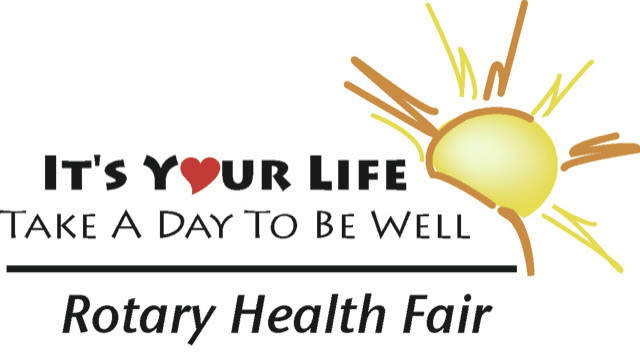In the early morning dark of Oct. 12, Jim and Ruth Lavrakas turned onto the gravel portion of Cityview Avenue, right before Bartlett Street reaches South Peninsula Hospital, and drove to where the road ends in a parking area, just a short distance.
There, a volunteer directed them to a lettered parking space where they called the posted phone number to be prescreened and finish the registration process for their low-costs blood tests.
After a wait in the car, they were shown to the building where blood draws for the 37th annual Rotary Health Fair are happening and so became a part of community history. Jim and Ruth were the first participants in this year’s re-imagined health fair, designed to be as COVID-safe as possible.
Their experience wasn’t entirely glitch-free. A software or printer issue caused about a 10-minute wait, but once the problem was fixed things went smoothly, Jim said.
“The technician drawing the blood was great and it was efficient once they got the right paperwork,” Jim said. “It was fine.”
As week three of the 37th annual Rotary Health fair comes to a close, you might be asking yourself one of three questions:
1. What’s the importance of the low-cost blood tests?
2. What do the results mean?
3. How do I sign up?
Homer medical professionals cite several reasons why you should consider the low-costs blood tests. For one, the blood tests can detect what could be life-threatening conditions.
“Every year we have participants that just had no idea that they had some major health issue going on,” said Laura Miller, laboratory director for South Peninsula Hospital and a member of the committee that helps plan the health fair every year.
The health fair blood draws have helped detect things like thyroid issues, leukemia and pre-diabetes, Miller said.
They also can point to silent but potentially deadly killers like kidney disease; high cholesterol, which could lead to a higher risk of heart attack or stroke; liver disease; anemia; and prostate cancer, said Dr. Rob Downey, who has spent 20 years in primary care and 14 years in functional medicine.
And they can detect things like a Vitamin D deficiency. Adequate levels of Vitamin D can boost your immune system and can cut the severity of many diseases, including COVID-19, said Dr. Bill Bell, who has been a family practice physician in Homer since 1981.
As a retiree now on Medicare, Jim Lavrakas said the blood tests provided through the health fair are a less expensive option than going through a medical provider. Plus, it’s a way to support the community and the health fair process.
Those thoughts mirror what Drs. Bell and Downey say about the economic and social importance of the health fair and its low-cost blood tests.
“They’re an entry into the health-care system for people that might be excluded by health care prices and by not having insurance,” Bell said.
Downey ticks off several reasons that the health fair is a community win. In these contentious times, it’s an apolitical environment, it’s accessible, it draws a diverse group of people — old and young with diverse political leanings. Plus, it builds trust with the medical community.
“I just see it as a super, super high-yield event,” he said.
For Lavrakas, the test results become an important part of his annual physical examination, which is in November.
“When I go see my general practice doctor, I already have this done. We can talk about those numbers right then and there,” he said.
That’s exactly how it should work, said Drs. Bell and Downey.
“These should not substitute for an annual exam,” Bell said. Instead, they help a primary care provider direct an examination or imaging or further lab work.
The results need to be interpreted, Downey said, who sees a number of people every year who want to know what their health fair blood test results mean.
While this year’s re-imagined health fair won’t have the big-one day event where people were able to glean all kinds of health tips, it will offer online presentations Nov. 9-13. (More details to come next week.)
In the meantime, Drs. Bell and Downey offer their top pointers for staying healthy.
“People need to manage their stress,” Downey said. “They need to have peace of mind. They need to eat whole food — a wide variety of fruits and vegetables of various colors. They need to get 8-9 hours of sleep every night.”
In addition to those things, Bell advised to exercise and not get aggravated, adding that “exercise helps burn off some of that aggravation.” He reminded everyone that the two most important drugs are food and exercise.
“Health really comes down to some simple rules,” he said. “Be kind. Look after people. Hydrate. And take vitamin D.”
In the first two weeks of the health fair, 322 community residents participated in the low-cost blood draws.
It’s not too late for you to do the same. Appointments are available for Oct. 30, Nov. 4, Nov. 5 and Nov. 6. Appointments are required and may be made by going to rotaryhealthfair.org. If you need special accommodations, call the Health Fair Hotline at 907-399-3158.
Lori Evans is the 2020-21 president of the Rotary Club of Homer-Kachemak Bay, which sponsors the health fair in partnership with South Peninsula Hospital.


